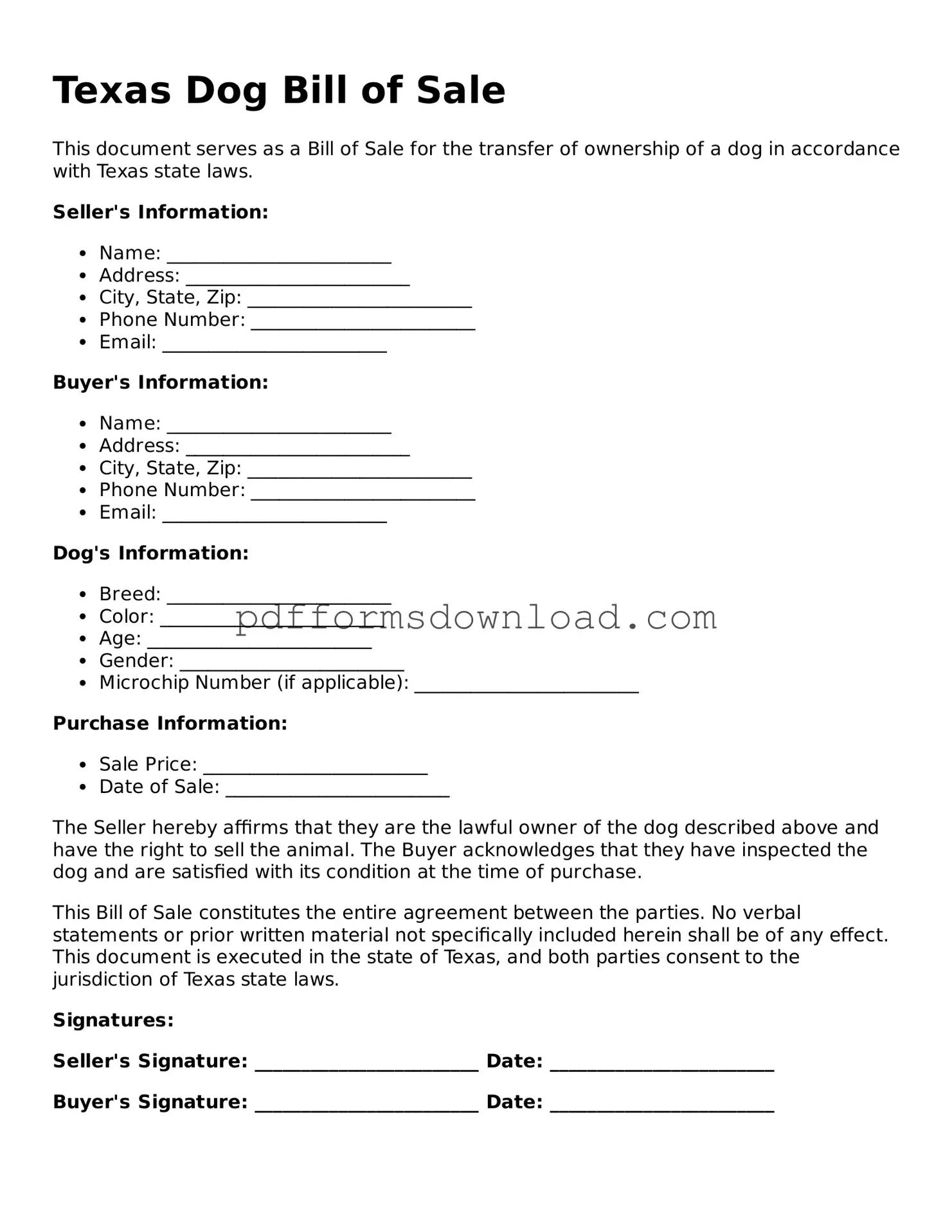What is a Texas Dog Bill of Sale form?
A Texas Dog Bill of Sale form is a legal document that serves as proof of the sale and transfer of ownership of a dog from one party to another. This form typically includes important details such as the seller's and buyer's names, the dog's breed, age, and any identifying features like microchip numbers. It helps protect both parties by providing a record of the transaction and can be useful for future reference, especially if there are any disputes regarding ownership.
Why should I use a Dog Bill of Sale when selling or buying a dog in Texas?
Using a Dog Bill of Sale is highly recommended for several reasons. First, it provides legal protection for both the seller and the buyer. The seller can demonstrate that they have legally transferred ownership, while the buyer gains assurance that they are acquiring the dog from a legitimate source. Additionally, having a written record can help clarify any misunderstandings about the dog's health, breed, or any guarantees made during the sale.
What information is typically included in a Texas Dog Bill of Sale?
A comprehensive Texas Dog Bill of Sale should include the following information: the full names and addresses of both the seller and buyer, a detailed description of the dog (including breed, age, color, and any unique markings), the sale price, and the date of the transaction. It may also include any warranties or guarantees regarding the dog's health, as well as a statement confirming that the seller has the legal right to sell the dog.
Is the Texas Dog Bill of Sale form required by law?
While a Dog Bill of Sale is not legally required in Texas, it is highly advisable to use one. Without this document, proving ownership can become complicated, especially in the event of disputes. Having a written agreement helps both parties feel secure and can prevent misunderstandings. It also serves as a clear record of the transaction for future reference.
Can I create my own Dog Bill of Sale, or should I use a template?
You can certainly create your own Dog Bill of Sale, but using a template can simplify the process and ensure that you include all necessary information. Templates often come with pre-formatted sections that cover the essential details, reducing the risk of omitting important information. If you choose to draft your own document, be sure to include all relevant details and consider having it reviewed by someone familiar with legal documents to ensure its completeness and accuracy.

